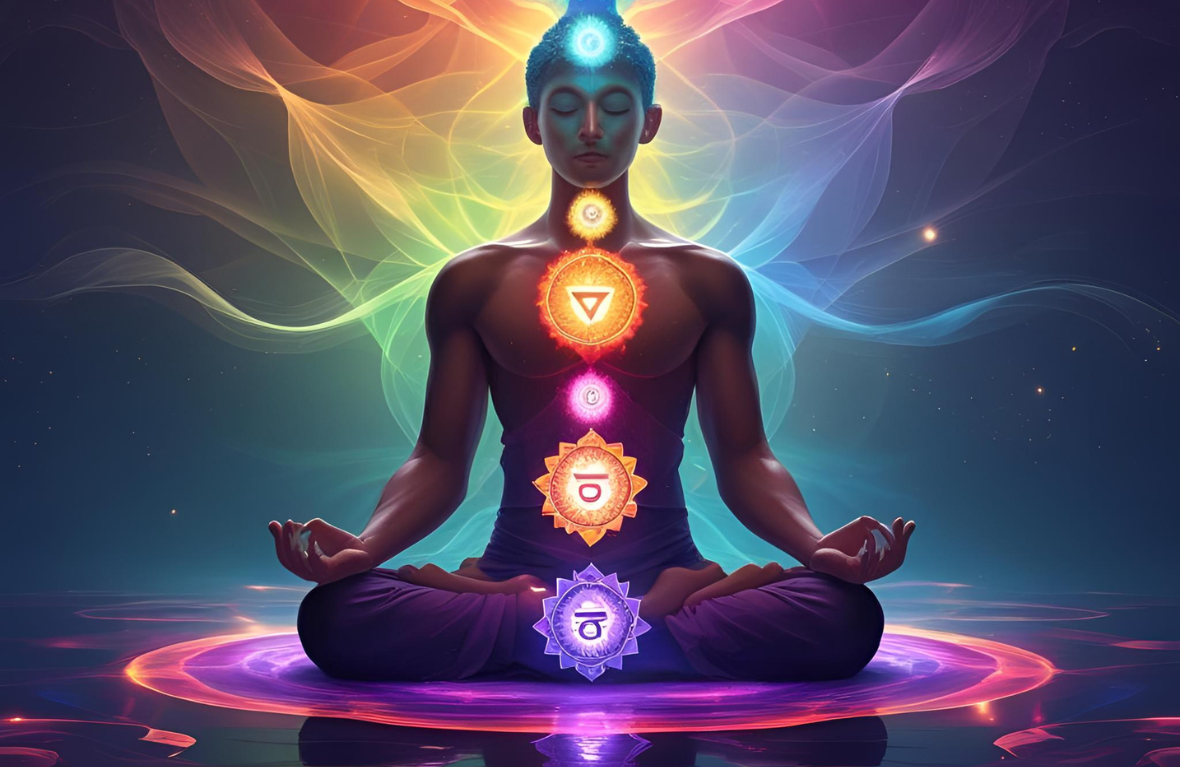Unlock your potential and understand your unique story by exploring how your chakras influence your personality, well-being, and every aspect of your life
Your chakras are more than just energy centers; they tell a detailed story about who you are. This intricate system of energy points influences your personality, moods, thoughts, and even your physical health. Understanding your chakras and their energy flow is key to understanding yourself.
Every chakra’s energy level directly impacts your temperament, from your mental clarity to your emotional stability. The way you interact with the world reflects the current state of your chakras. When a chakra is imbalanced—either overactive or underactive—it creates a ripple effect, influencing other chakras and leading to energetic blockages over time.
Unlocking Your Aura and Chakra Connection
Your chakras are interconnected with your personality, body, and aura, the vibrant energy field surrounding you. This aura is a colorful reflection of your entire being, made up of vibrations from your thoughts, feelings, physical state, and spiritual connections.
A balanced chakra system means your energy is flowing smoothly, but when one chakra is deficient, another often becomes overactive to compensate. This is because your total energetic field remains constant; energy isn't created or destroyed, it just shifts. These natural ebbs and flows are what shape your moods, thoughts, and overall well-being.
To truly understand your energy system, it's helpful to consider several factors:
Chakra Balance and Vitality
A chakra can be balanced, weak, or congested. The more balanced and open your chakras are, the stronger the communication between them. For example, an overly active brow chakra (third eye) can cause you to live in a world of constant imagination or fear, pulling you away from the present moment. This can happen when that center is in excess, causing you to constantly imagine different outcomes or scenarios.

Key Factors in Chakra Analysis
To truly understand your energy system, it’s helpful to consider several factors:
A chakra can be balanced, weak, or congested. The more balanced and open your chakras are, the stronger the communication between them. For example, an overly active brow chakra (third eye) can cause you to live in a world of constant imagination or fear, pulling you away from the present moment. This can happen when that center is in excess, causing you to constantly imagine different outcomes or scenarios.
Each chakra has a specific color frequency. However, other colors can appear in your aura and chakras, indicating hidden patterns or unconscious programming from the past. By interpreting these unique color frequencies, an analyst can gain insight into your psyche and the root causes of imbalances.
Each chakra is linked to specific organs, glands, and parts of the brain. Modern technology, like the Biopulsar-Reflexograph, can help identify chakra and aura imbalances by monitoring which centers are consistently weak or overactive. For example, a person who relies heavily on public speaking may find their throat chakra becomes weak after a long day of talking. Using blue aromatherapy or essences can help restore this chakra’s vitality.
Additional Chakra Insights
Beyond the main factors, each chakra also reveals:
Masculine or feminine qualities
Emotional or intellectual connections (left versus right brain)
Physical or spiritual vibrations
Extroverted or introverted traits
How to Achieve Chakra Balance
While self-analysis can be challenging, understanding your chakra flow and any color frequencies present provides concrete evidence of how you operate. A qualified chakra analyst can help you navigate this complex system. They can create a personalized plan to balance your energy through various modalities, such as:
Affirmations and visualizations
Color healing therapies
Specific foods and nutritional advice
Restoring balance to your chakras is a holistic process that addresses your mind, body, and spirit.
Disclaimer Notice
The content on this site is meant for general knowledge and informational purposes only, and does not constitute medical advice. It is essential to consult with a qualified healthcare professional for any health concerns or before making any decisions related to your health or treatment.







Comments
adamgordon
Thanks for sharing this post, it’s really helpful for me.
cmsmasters
Glad to be of service.
annabrown
This is awesome!!
cmsmasters
Thanks.